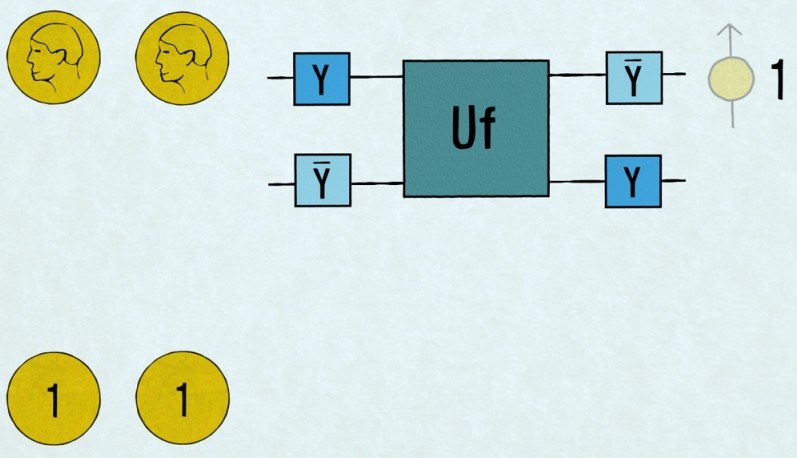Programming on a silicon quantum chip
on

Quantum technology is progressing quickly. Researchers are now able to control a few individual qubits with great reliability; but the time has now come that it should appear more like a real computer. Useful quantum chips, therefore, have to be programmable: it should be possible to execute any arbitrary calculation. Researchers from QuTech in Delft have developed a programmable two-qubit quantum processor that is based on silicon and they have implemented two quantum algorithms. The research has been published in Nature.
Promise
The quantum computer of the future will be a game changer for large calculations. By making use of quantum superposition and entanglement of quantum bit (qubits), calculations can be carried out in parallel. In this way calculations that are presently impossible, such a factoring large prime numbers and searching of large unordered lists, are becoming a possibility in the not too distant future, according to professor Lieven Vandersypen.
Programmable calculations
Researchers have, over the years, succeeded in realising increasingly better qubits. The single qubits can now be controlled and measured at a sufficiently high reliability that practical programming has become a possibility. In order to be able to carry out universal quantum calculations, operations are required that control individual qubits and operations that can entangle multiple qubits in a controlled manner. These operations have to be available such that they can be ordered in any chosen way to execute an algorithm.
Known material
The researchers from QuTech and the Kavli Institute of Nanoscience Delft in the team of Lieven Vandersypen, in collaboration with colleagues from the University of Wisconsin, focus on qubits in silicon chips. These qubits are created using a controlled electrical signal to 'lock in' a few electrons. Silicon is a material with much promise: it has been thoroughly developed by the current computer industry and naturally causes few disturbances to qubits. Silicon quantum chips have much in common with classic computer chips and the qubits can be fully controlled electronically.
Tossing coins
Using the reliable operations in the two-bit quantum chip, the scientists have succeeded in executing quantum algorithms for the first time. The first algorithm, the Deutsch-Josza algorithm, tests whether a function is ‘even’ or ‘odd’. Additionally, they also performed the so-called ‘Grover Search algorithm’. This algorithm searches in one go for the correct answer from an unsorted set.
Future work
This example of a programmable quantum chip with reliable qubits in silicon is an important milestone towards reliable and scalable quantum calculations. The scientists demonstrated that the qubits can be controlled, can be entangled with great reliability and that operations can be combined into a quantum algorithm.


Discussion (0 comments)